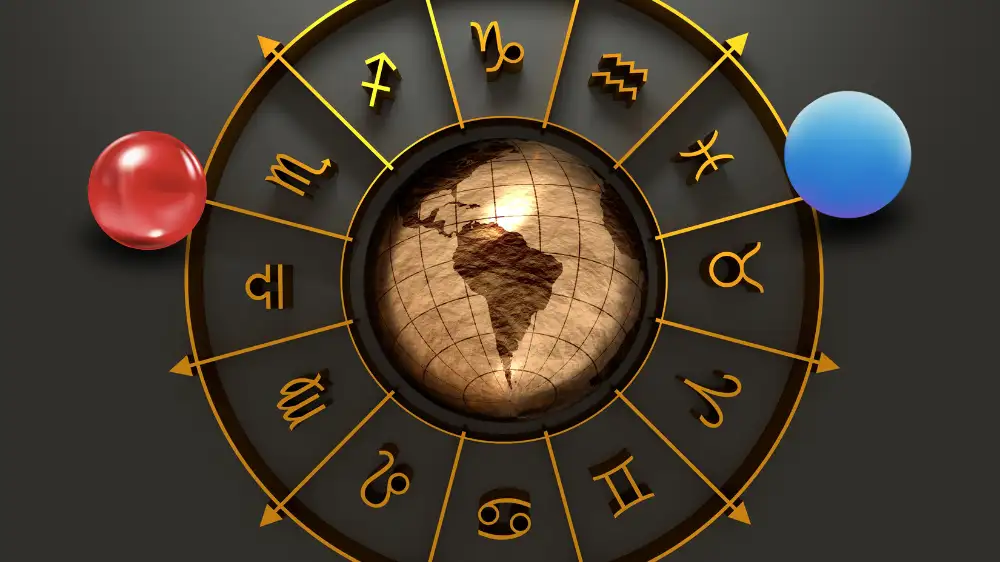[toc]
Promittors & Significators
The same planet can take on different roles. In my horoscope, for example, Venus signifies romances and marriages, money, illnesses, and death. Consequently, considered relative to the 7th house, the favorable aspect of Venus will bring new love into my life. The same aspect relative to the 2nd house will bring wealth.
The unfavorable aspect of Venus relative to the 12th house will bring illness of Venusian nature, and relative to the 7th house, will create a heartbreaking romance.
The same planet (or its aspect) relative to the different houses (the spheres of life) promises different events. That is why the planet and its aspects are considered relative to a specific house and are called promittors (relative to a given house).
In primary directions, we move the promittors (planet and its aspects), promising something good or bad regarding a specific house, to the significator of that same house.
For example, to find out the date of a severe illness in my horoscope, we would direct an unfavorable aspect of Venus to the significator of the 12th house of the disease since unfavorable aspects of Venus create diseases relative to the 12th house.
To find the date of a significant romance, we would move a favorable aspect of Venus to the significator of the 7th house since favorable Venus' aspects relative to the 7th house produce romance.
In Hitler's chart, Venus signifies deadly threats relative to the 10th house. Thus, “threats to life while on duty” or “threats during public activity” are among Venus's specific roles. Therefore, to determine when this particular role will come into play, we would direct a malefic aspect of Venus (ruler of the 8th house) to the significator of the 10th house—this would show us the date of the assassination attempt during a public appearance.
Thus, directing the same planets' aspects (promittors) to the different houses' significators reminds answering the horary question, “When will a particular event manifest in a native's life?”. The degrees in the aspect denote the years from birth to that event in question.
Who Can Be a Promittor?
- Promittors can be planets or their aspects that produce or destroy the affairs of a specific house, as shown in the examples above.
- Promittors can also be planets' antiscia. Antiscia is the copy of planets similar to the aspect. The difference is that an aspect suppresses planets' bad or good qualities depending on its form (square, trine, etc.), while antiscia does not.
- Promittors can also be fixed stars if they occupy the house in question.
Who Can Be a Significator?
- Significators are planets most determined by the house, i.e., planets occupying or ruling the house by sign.
- The cusp of the house is also a significator, as the zodiac degree on the cusp is maximally determined by the house to a specific area of life.
- Regarding financial success, the Part of Fortune is a general significator of wealth.
Finally, if there is a planet with the same (or directly opposite) nature among the planets connected with the house, then this planet can also act as a natural significator of the affairs of the house.
- For example, in a question about a child's birth, the Moon will indicate children, but only if it is associated with the 5th house, for instance, by aspect, rulership, dispositors, and so on.
- Regarding career advancement, the Sun will indicate fame and recognition, but only if it is associated with the 10th house.
- Jupiter will indicate wealth in a question about profit, but only if it is associated with the second house.
- In the personal safety question, Mars may be a significator of injury to the body, but only if Mars closely aspects the ASC by unfavorable aspect, which is strongly inimical to life.
- And so on.
Special Role of the 1st House
The 1st house, representing the native, can act as a significator in almost any question. For example, the direction of the promittors of the child towards the significator of the 5th house brings the birth of a child. Similarly, the direction of the promittors of the child to the significator of the native can produce the same effect. Both aspects are equally capable of bringing children.
But when it comes to the 1st house, you must exercise caution. For example, in my horoscope, a very favorable sextile of Venus in Pisces approaches the Ascendant, indicating a positive event in October 2000. But what could it be? Venus co-rules the 2nd and 7th houses. This aspect can equally bring a new love or an influx of money. I will have to look at other directions this year to choose the correct option.
In 2000, I had no prominent directions indicating enrichment. However, right after the successful direction of Venus to the Ascendant in October 2000, a “neutral” aspect of Mercury (co-ruler of the 7th house) approached the 7th house cusp in November 2000. The second aspect followed the first and pertained to the 7th house. It rules out the option of enrichment. Thus, the aspect of Venus to the Ascendant promises big love at the end of the year. And so it was—in December 2000, I embarked on a passionate romance that left a mark for years.
It is safe to direct the promittors of the 1st house to the significators of the corresponding house. For example, in my horoscope, a favorable aspect of the ruler of the 1st house (literally, a favorable period of life) approached the cusp of the favorable 10th house in January 2003. A fortunate circumstance entered the 10th house between 2002 and 2003. So I expect only one thing from that aspect—success in my undertakings. And so it was. After a prolonged scientific activity, I started my first work in an office for the first time in October 2002. Later, I quickly rose through the ranks in my career. It was a prominent date in my biography.
N.B. on technical terms:
In matters of death, the most harmful planet (or her unfavorable aspect) related to the 8th house is the promittor of death relative to the 1st house of life. It is called anareta or abscissor. We direct the anareta to the most unfavorable significator of life—it will most effectively receive the deadly aspect and complete the native's earthly journey. You may hear terms like hyleg or apheta, which all denote the native's life in life-duration questions. In these terms, we can say that death occurs when the anareta approaches the weak hyleg in the primary direction.


